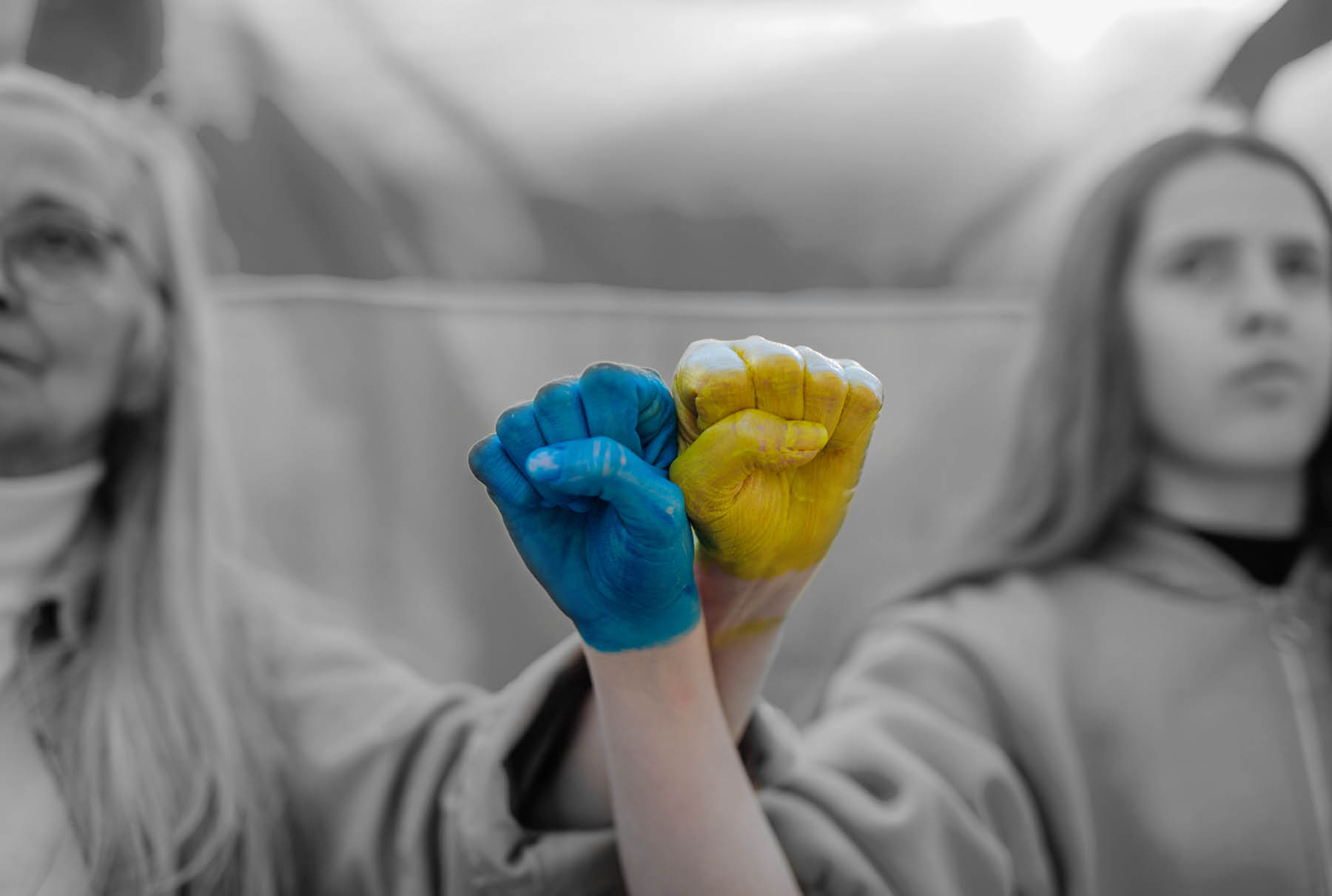How Ukrainian women achieve work–life balance in a war zone

The typical concept of work–life balance inherently implies equilibrium, where work and personal life are intertwined without displacing each other. This is the ideal scenario – but what happens to this model when it’s disrupted by war?
When a full-scale war broke out in Ukraine on 24 February 2022, Ukrainians were forced to put their lives on hold. Their main priorities were defending their homes, escaping shelling, saving others, protecting themselves and their children, delivering humanitarian aid and staying in shelters.
This crisis naturally puts people in a ‘fight or flight’ mode. Every effort was made to preserve lives and resist the enemy. Many Ukrainian enterprises temporarily stopped working, leaving people unemployed.
In such circumstances, talking about work–life balance is impossible; the whole situation is the opposite of balance, where the primary task of Ukrainians has been to survive.
Adapting and adjusting
However, time is passing, and Ukraine is now in the third year of a full-scale war, which has brought about adaptation to new living conditions. Ukrainian businesses have resumed their operations and more Ukrainians are employed now.

The war has instilled a new awareness that ‘later’ may never come, so the time to act is now.
According to a Gradus Research survey, on the third anniversary of the full-scale invasion, 61 percent of surveyed Ukrainians now have jobs and work full or part-time, compared to just 37 percent in May 2022.
So the life of Ukrainians is gradually coming back to being about earning a living and providing for themselves and their families. The needs and responsibilities that existed before the war didn’t disappear; they were just overshadowed by immediate physiological and physical safety needs.
As Ukrainians adapted to the new living conditions, it has become clear that life goes on, and there are many ‘have-tos’. They are striving to achieve career success; spend more time with loved ones; organize and maintain their work and living spaces; and pursue personal interests that they no longer want to postpone.
The war has instilled a new awareness that ‘later’ may never come, so the time to act is now.
So it’s logical that Ukrainian women’s involvement in various fields is growing even compared to last year, especially in full-time jobs (24 percent in 2024; 14 percent in 2023) and part-time jobs or additional work (21 percent in 2o24; 14 percent in 2023).
In reality, it’s not only achievable but sometimes even crucial to continue living.
Other significant commitments are household chores, caring for family members and child care – all occupying around the same amount of time as in 2023.
And what does this suggest? Ukrainian women persistently refuse to scale back their commitments at work and in their personal lives. However, due to the impact of the war, their stress levels have increased (45 percent of women surveyed report higher stress levels compared to a year ago), prompting them to organize lives and responsibilities in a manner that sustains their emotional wellbeing.
Incorporating self-care
In order to alleviate the impact of intense pressure and worries, Ukrainian women have integrated more self-care into their work–life balance to enhance their emotional stability. For instance, 45 percent of Ukrainian women have begun taking better care of their health, which marks an eight percent increase from last year.
Similarly, there’s a positive trend in dedicating more time to themselves. It’s not about reducing concerns but about effectively managing time and ensuring self-care remains a priority – even in the face of stress when it may seem there’s no time or it’s impossible.
In reality, it’s not only achievable but sometimes even crucial to continue living.
No matter how challenging it gets, Ukrainian women are making their own choices, taking responsibility for their lives and striving to do their best despite the difficulties they face.
Another significant impact of the war on Ukrainian women is how it has further intertwined social defense into their renewed work–life balance.
Consequently, they actively pursue professional self-expression: 46 percent of Ukrainian women are seeking career advancement, leadership roles in project and organizational management and increased influence and responsibility; and 50 percent are expressing readiness to take on these roles.
Although many Ukrainian women say that peace and economic stability are lacking for their professional fulfillment, they still show a strong desire to achieve their professional goals. It indicates they are committed to further developing and enhancing their skills.
The future of work–life balance
Another significant impact of the war on Ukrainian women is how it has further intertwined social defense into their renewed work–life balance. They have become more sensitive to others, as the war unites people through shared grief and underscores the importance of helping each other.
For instance, almost one-third of women surveyed are ready to support the rights of people with disabilities. About a quarter of the respondents noted the need to expand the rights of war veterans, and they are ready to contribute to their defense personally.
So how has the war changed the concept of work–life balance for Ukrainian women?
First, it has shown that the model isn’t one-size-fits-all and must adapt to external circumstances.
Second, it’s clear that work and personal life can’t be neatly separated; work is a part of life, not something to prioritize at the expense of everything else. Spending time with loved ones, organizing personal space, pursuing hobbies, engaging in community and prioritizing self-care are just as crucial as work.
Trying to fit all these aspects into half of the ‘life’ of the work–life balance concept isn’t feasible. Instead, we need to prioritize all the aspects that matter most, remain aware of current external challenges and do our best in whatever circumstances we find ourselves in, no matter how challenging they may be.